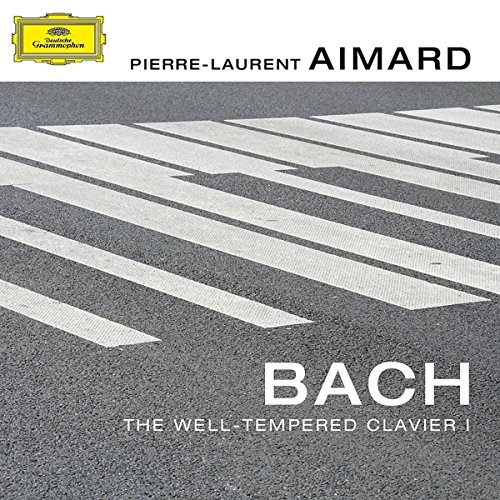BACH The Well-Tempered Clavier, Book 1
View record and artist detailsRecord and Artist Details
Composer or Director: Johann Sebastian Bach
Genre:
Instrumental
Label: Deutsche Grammophon
Magazine Review Date: 09/2014
Media Format: CD or Download
Media Runtime: 112
Mastering:
DDD
Catalogue Number: 479 2784

Tracks:
| Composition | Artist Credit |
|---|---|
| (Das) Wohltemperierte Klavier, '(The) Well-Tempered Clavier, Movement: Book 1 BWV846-869 |
Johann Sebastian Bach, Composer
Johann Sebastian Bach, Composer Pierre-Laurent Aimard, Piano |
Author: Stephen Plaistow
Yet Pierre-Laurent Aimard’s recording tempts me to risk the observation that in some countries their reception as ‘models’, to be handed down to students at institutions along with the teaching methods of such places, has been to the detriment of a more complete recognition of Bach’s greatness. Might that not have been true in France and at the Paris Conservatoire? I hesitate to speculate further, since Pierre-Laurent Aimard is such a distinguished musician. But I do wonder, a bit: the finish in his account of Book 1 is near immaculate, if you can accept playing that never utilises the sustaining pedal and projects only the most restricted range of dynamics and light and shade. Yes, there is a little play of colour, but blink and you may have missed it. Clarity of texture and of part-playing are the virtues which predominate, plus a cool atmosphere. Whether or not we think of these as characteristically French, they do bring rewards in Bach, of course; and yet the impression Aimard conveys is of Book 1 as a monument, even a scholastic tract, in a time warp. The gamut of Bach’s rhetoric is not suggested; nor is there enough of his delight in craftsmanship and inflections of expression. I miss too a singing style and an acknowledgement of the vocal inspiration that lies behind so much of his keyboard-writing. The notes are enough, Aimard seems to be implying. Do not expect me to offer a gloss.
Best perhaps to dodge about with him, rather than take his somewhat monolithic product uninterrupted. I respond with most enthusiasm when there is variety of sound and character (C sharp major, C sharp minor, A major, B flat minor) and exceptional clarity and technical address (D sharp minor fugue, E major fugue, E minor prelude, F minor fugue). Fugue is a texture and, as we know, the character of a Bach fugal movement derives from its subject. Here, in the longest fugues, when the subject is lengthy and delineated by Aimard a note at a time, with ungenerous shaping and only vestiges of phrasing, we’re obliged to sustain ourselves with the effects of whatever build-up of inventive procedures and contrasts the composition may bring (B minor, and the A minor, which goes doggedly from beat to beat and cries out for more differentiation).
Dodge about also, if you can, in Edwin Fischer’s pioneering recording of the 1930s, where there are wobbles and lapses from grace but many marvels. Among modern versions I return most often to the one by András Schiff. Peter Hill’s, on Delphian, is I daresay in danger of being overlooked. It is intimate and he communicates as if happy to be playing to friends. Hill is wonderful in Messiaen, as Aimard is, and I just wish Aimard was more interested in playing Bach as lyrically as Hill does.
Discover the world's largest classical music catalogue with Presto Music.

Gramophone Digital Club
- Digital Edition
- Digital Archive
- Reviews Database
- Full website access
From £8.75 / month
Subscribe
Gramophone Full Club
- Print Edition
- Digital Edition
- Digital Archive
- Reviews Database
- Full website access
From £11.00 / month
Subscribe
If you are a library, university or other organisation that would be interested in an institutional subscription to Gramophone please click here for further information.




